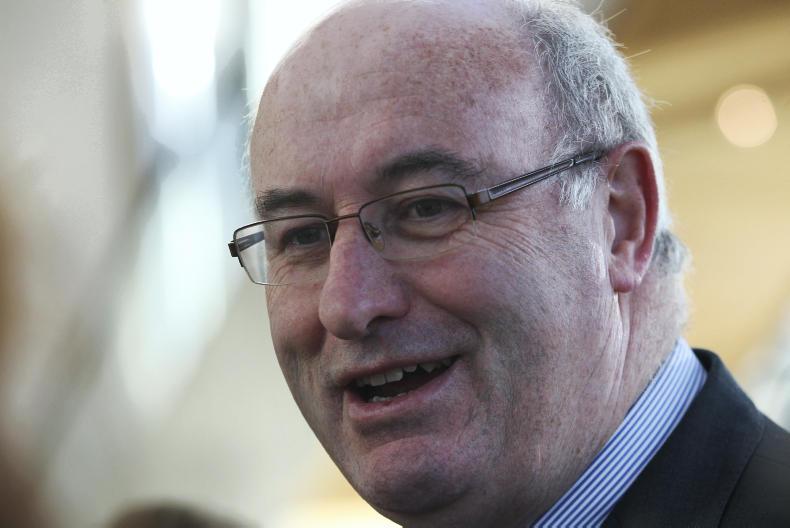Proposals to simplify the requirements of greening under EU farm payments were on the agenda at the European Council of Agriculture Ministers meeting in Luxembourg on Monday, after a majority of countries rejected the ban on pesticide use in ecological focus areas (EFAs) proposed by the European Commission.
“I indicated some changes that I was intended to make – minor changes in order to ensure it reflected some of the concerns expressed already,” European Commissioner for Agriculture Phil Hogan told a news conference after the meeting.
Opposition
Ireland was among the 18 countries that issued a statement ahead of the meeting opposing three of the Commission’s greening proposals:
The introduction of ban on using pesticides in EFAs.The extension of the minimum fallow period from six to nine months.The introduction of an obligatory 10-week period for catch crops. “These proposals would increase farmers’ costs and administrative burden,” the 18 countries declared, adding that the pesticide ban would be “unjustified”.
Hogan said the Commission had agreed to reduce the minimum catch crop period to eight weeks and keep the minimum duration for land laying fallow at six months. He added that greening reform would only apply from 1 January 2018, with an option for countries to implement it in 2017 if they wish to. However, he said the pesticide ban was still on the cards.
We are continuing with the principle of the ban on pesticides in ecological focus areas
“We are continuing with the principle of the ban on pesticides in ecological focus areas, but we are looking at how this particular issue could be the subject of control arrangements,” the commissioner said. “Controls could be undertaken on the basis of farmers’ declarations and on-the-spot controls could be based on visual inspections.”
The Commission’s proposals followed EU-wide public consultation and environmental organisations engaged in the process have criticised the countries opposing the pesticide ban, with An Taisce commenting that “€364,500,900.00 will be handed to Irish farmers for greening measures which the Irish Government intends to render meaningless”.
CAP reform
Hogan also confirmed that the Commission had submitted a so-called omnibus regulation with other simplification measures for approval by EU legislators. He added that the Commission would start making proposals for CAP reform post-2020 “very soon”.
Read more
Full coverage: greening
Proposals to simplify the requirements of greening under EU farm payments were on the agenda at the European Council of Agriculture Ministers meeting in Luxembourg on Monday, after a majority of countries rejected the ban on pesticide use in ecological focus areas (EFAs) proposed by the European Commission.
“I indicated some changes that I was intended to make – minor changes in order to ensure it reflected some of the concerns expressed already,” European Commissioner for Agriculture Phil Hogan told a news conference after the meeting.
Opposition
Ireland was among the 18 countries that issued a statement ahead of the meeting opposing three of the Commission’s greening proposals:
The introduction of ban on using pesticides in EFAs.The extension of the minimum fallow period from six to nine months.The introduction of an obligatory 10-week period for catch crops. “These proposals would increase farmers’ costs and administrative burden,” the 18 countries declared, adding that the pesticide ban would be “unjustified”.
Hogan said the Commission had agreed to reduce the minimum catch crop period to eight weeks and keep the minimum duration for land laying fallow at six months. He added that greening reform would only apply from 1 January 2018, with an option for countries to implement it in 2017 if they wish to. However, he said the pesticide ban was still on the cards.
We are continuing with the principle of the ban on pesticides in ecological focus areas
“We are continuing with the principle of the ban on pesticides in ecological focus areas, but we are looking at how this particular issue could be the subject of control arrangements,” the commissioner said. “Controls could be undertaken on the basis of farmers’ declarations and on-the-spot controls could be based on visual inspections.”
The Commission’s proposals followed EU-wide public consultation and environmental organisations engaged in the process have criticised the countries opposing the pesticide ban, with An Taisce commenting that “€364,500,900.00 will be handed to Irish farmers for greening measures which the Irish Government intends to render meaningless”.
CAP reform
Hogan also confirmed that the Commission had submitted a so-called omnibus regulation with other simplification measures for approval by EU legislators. He added that the Commission would start making proposals for CAP reform post-2020 “very soon”.
Read more
Full coverage: greening






 This is a subscriber-only article
This is a subscriber-only article










SHARING OPTIONS: